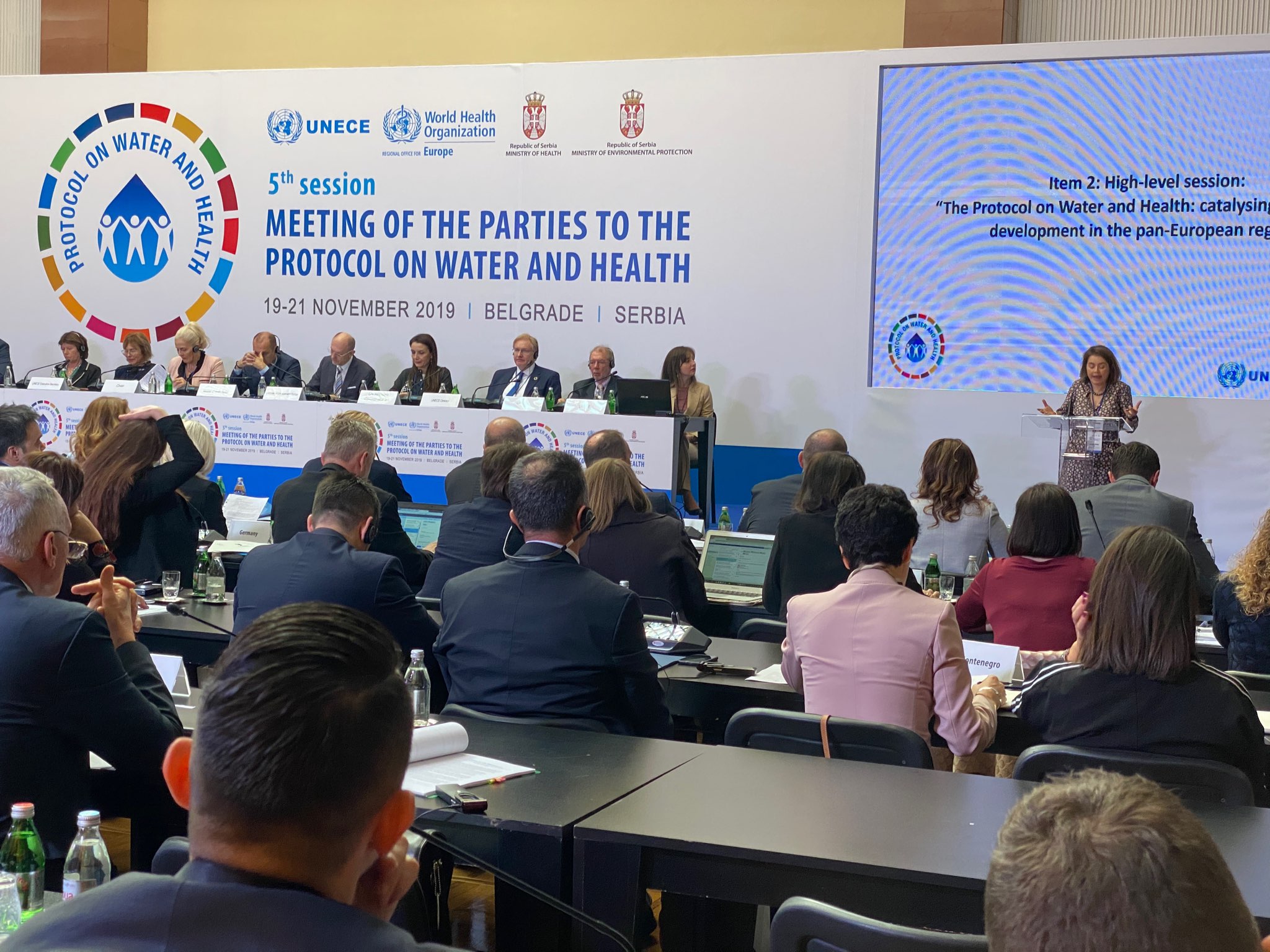I am excited to share with all the SWA partners that I have recently been elected as a new member of the United Nations Economic Commission for Europe (UNECE)-WHO/Europe Protocol on Water and Health Compliance Committee. The Protocol on Water and Health is a legally binding instrument aimed at “achieving an adequate supply of safe drinking water and sanitation for everyone and effectively protecting water resources in the pan-European region”. The compliance committee oversees the conformity of Parties’ action with their obligations under the Protocol.
As we are nearing the 10th anniversary of the recognition of human rights to water and sanitation, I would like to applaud the constructive approach taken by the countries– with governments emphasizing on accountability, on participation and access to information. Moreover, under the Protocol for Water and Health, there has been significant progress in a number of areas, including
- Improving governance for water and health;
- Prevention and reduction of water-related diseases;
- Institutional water, sanitation and hygiene;
- Safe and efficient management of water supply and sanitation systems;
- Small-scale water supplies and sanitation;
- Increasing resilience to climate change; and
- Compliance.
However, we still have a long way to go. Over 31 million people in the Pan-European region still lack access to basic sanitation services and 314,000 people practice open defecation. Every day, 14 people die because of inadequate water, sanitation and hygiene (WASH).
The Protocol on Water and Health has found that there is a need for an integrated approach to water management (from environmental protection to service providers) as a preliminary condition to ensure access to safe water for all. The implementation of the Protocol requires an integrated approach and the alignment of policies and strategies in different sectors, ranging from health protection to environmental management, regional development, investment, infrastructures and education. This calls for multi-stakeholder engagement and inter-sectoral cooperation- an approach that fits well with Sanitation and Water for All, a partnership of countries, civil society, external support agencies, the private sector and research and learning institutions.
This Protocol also provides a framework to put into practice the human rights to water and sanitation and to implement SDG6 through the initiative of the self-assessment Equitable Scorecard. Interestingly, SWA’s Mutual Accountability Mechanism (MAM) corresponds to the UNECE’s identified need to ensure compliance, especially regarding the commitments taken by SWA partners. I think that there are lessons that can be learnt from each other.
Currently our partners come predominantly from Asia, Africa and Latin America, I am looking forward to work further and welcome partners from Europe and beyond. While the extent of the problems may be different across the globe, the tools to address the problems of inequalities, climate change, corruption, including strengthening systems, improving policy, holding duty-bearers to account and increasing financing are universal. With this appointment, I will do my best to promote the realization of the rights to water and sanitation in the region.

